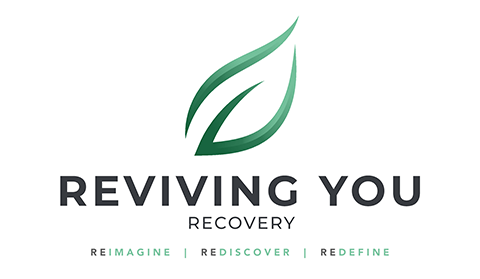Why Do Some People Keep Relapsing?

Today, an estimated 48.7 million Americans have a substance use disorder or “addiction”. This means that 17.3 percent of the population or around 1 in 6 U.S. adults qualifies as having a substance use disorder. Recovering from that means getting treatment. Today, there are more and more resources including treatment options, therapy, aftercare, and ongoing support available to make that happen. And, with studies showing that 13.6 million Americans receive substance abuse treatment every year, many of us are getting that help.
Yet, for some of us, treatment isn’t enough. You might find that no matter how many times they go to rehab, some people just keep relapsing. Why does this happen? Why do some people go through rehab and come out clean and sober and others keep falling down?
Addictions are complicated and the reasons can be multifaceted with genetics, environment, stress, behavior, and trauma all coming into play. We’ll look at those reasons and what you can do about it in the following article.
Understanding Behavioral Addiction
A substance use disorder is part chemical dependence (physical addiction to a substance) and part behavioral addiction. Most people are very familiar with the chemical dependence aspects of addiction. These result in cravings, withdrawal symptoms, and increased tolerance to the substance so you need more and more of it to achieve the same results. Chemical dependence is also the part of addiction that you can treat by going cold turkey, quitting the drug, and waiting the 3 months to 2 years until the last of the physical side-effects go away.
Unfortunately, most people also struggle with behavioral addiction, meaning that they are mentally reliant on the drug. This means that you use drugs or alcohol to help cope with mental turbulence or upset, as comfort, and as a habit. For many people, substances are an out – whether that’s a release and a way to let go after a stressful week, coping with stress, or using substances to escape from feeling pressure or from racing thoughts.
That type of addiction is much harder to treat, because fixing the underlying problem means intensive therapy, self-change, and recognition of what the problem actually is. It means building new coping mechanisms, learning to deal with negative emotions, and learning how to manage stress. All of that takes time.
It’s also the phenomenon behind why people attempting to quit cigarettes often sail through the physical withdrawal and cravings periods and then relapse after chemical dependence is over and all of their focus goes back to behavioral reliance.
Reasons People Keep Relapsing
So why do people keep relapsing? That can be multifaceted.
Risk Factors
Substance abuse has risk factors, much like any other kind of mental or behavioral health problem. Here, the largest risk factors are:
- High stress environment
- Trauma or adverse childhood experiences
- Genetics
- Epigenetics (People whose family drink or use are more likely to do so)
- Environment
- Routine and behavior
Of those, you’ll note that most are difficult to change or control without time and the ability to change your environment.

Get Your Questions Answered Now

Triggers
Relapse is often prompted as a response to a trigger. People don’t wake up one day and decide to start using again. Instead, things happen that push them into a mental state where they feel they need a substance, or they need an escape.
In early recovery, even the sight or smell of a drug or alcohol can be that trigger, but early exposure therapy can prevent and replace this with coping mechanisms. Instead, people are often triggered into relapse by factors like:
- Stress at home, during commute, or at work/school
- Returning to the same lifestyle as before
- Lack of reward or motivation in daily life
- Poor mental health
- Lack of skills to cope with ups and downs in life
People habitually use and drink to cope with stressful commute, to celebrate good things happening, to get over having a boss yell at them, to calm down after a partner has been angry at them. Simply taking the substances out of those situations does not mean you suddenly gain the coping skills to manage those problems and not working to build healthy coping mechanisms often means you’re setting yourself up for a relapse.
Untreated Problems and Trauma
Addiction and substance abuse are often symptoms of underlying problems. For example, trauma, adverse experiences as a child, undiagnosed or untreated mental health problems, significant interpersonal problems, trauma experienced while addicted to a substance, etc., can all contribute to an ongoing need of a substance to feel like you are managing or capable of managing. People often use substances as a crutch when things are very bad and then forget how to function without the crutch. That’s why trauma-informed treatment is more and more often the norm, because trauma and substance abuse very often go hand-in-hand.
Lack of Routine and Support Systems
In many cases, routine and support systems, including home support, social support, and support from family and loved ones is a critical part of staying clean and sober. For people who don’t have that, relapse is much more likely. That links to the fact that people need social support and social contact. We also need to feel like we belong and are part of the group, that people want us there, and that we aren’t a burden when we do interact with friends and family. Rebuilding that after a substance abuse problem can be extremely difficult.
This is also why modern treatment often takes family therapy, relationship therapy, and ongoing social support into account. For example, group therapy and self-help groups help individuals build social support, initiatives like sober living mean you get structure and routine at home, and therapy helps you rebuild relationships with family and loved ones so you have the motivation and accountability to continue to invest in recovery.
Lack of Motivation
Some people just don’t have the intrinsic motivation to stay clean and sober. That can be because they are pushed into treatment by their family or the law, because they romanticize substance abuse, because they haven’t found a reason to live without drugs and alcohol, because their mental health is that bad, etc. Here, motivational therapy can play a role in correcting this. However, trauma-informed therapy and a holistic approach to look at what’s wrong and how to improve quality of life can also be instrumental in creating motivation for change. Building motivation can be incredibly difficult, especially if the individual isn’t accustomed to the fact that life can be better or different, which can mean it takes years to figure out how to get through to that person.
Addiction or a substance use disorder is very often about mental health, quality of life, and underlying causes. For many of us, that means that breaking the cycle means creating real change in how we live, who we live with, how we build relationships, and in how we cope with problems and emotional turbulence. Without those changes, relapse is almost inevitable – which is why so many people relapse even after treatment. Often, the solution is to invest in trauma-informed therapy, to look at underlying causes, and to invest in long-term support and social support after leaving treatment. This may mean moving into a sober home, going to long-term group therapy, or getting follow-up treatment for years after primary treatment is completed – however, that will depend on you and your mental health.
We Accept Most Insurances
We are in network with:









We know insurance coverage can be a source of uncertainty for people. We make sure you have all the information necessary. The great news is health insurance can potentially cover the total treatment costs. If you don't have insurance, we offer cash payment options for our treatment programs and are committed to working with clients regardless of financial situations.
